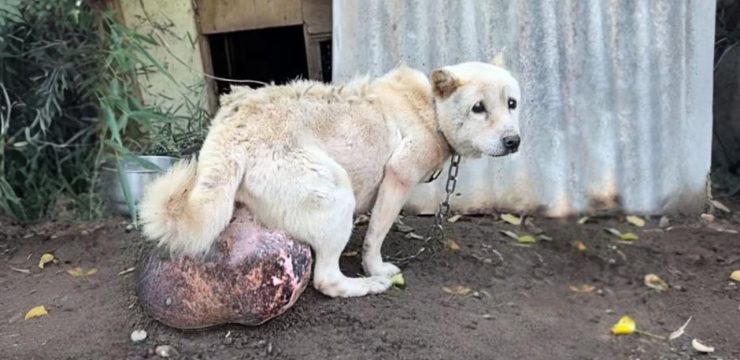A recent viral video has sparked a heated conversation online, and it all centers around the controversial topic of tipping. A server took to TikTok to voice his frustration with customers who fail to tip the standard 20%, and the response from viewers has been anything but quiet. While tipping has long been a part of American dining culture, this video reignited debates on what constitutes fair compensation for service—and who’s responsible for ensuring that fairness.

In the video, TikTok user Ben Raanan, who goes by @blazikenben, directed his message to people he labeled as “bad tippers.” He criticized those who leave small tips like \$5 or \$10 on bills that, in his opinion, clearly warrant more. “This is for all you bad tippers out there,” Ben declared. “If you’re a bad tipper, listen up.” According to Ben, tipping has not kept up with inflation, and a \$10 tip simply doesn’t stretch as far as it used to. He emphasized that leaving small tips isn’t just outdated—it’s disrespectful. “You can’t just leave a little cute \$5, a little cute \$10 for your server, and think that’s like fun and cute. It’s not fun and cute,” he stated firmly.
Ben also argued that tipping should be based on the total value of the bill, not just a flat dollar amount. “If your bill was like \$50, you can leave \$10; that’s 20%, that’s fine,” he explained. But when customers leave tips that are significantly less than 20% on large checks, Ben believes it’s an insult to the people serving them. His message wasn’t just directed at diners—he also called on fellow servers to speak up when they feel disrespected by low tips. “We need to start confronting people who tip like this,” he said, suggesting that open conversations about tipping expectations might be one way to address the problem.
Toward the end of the video, Ben provided a tip calculation trick for viewers who might not know how to quickly compute 20%. His goal was to make tipping easier and to remove any excuses for not tipping appropriately. The message was clear: tipping is more than just a kind gesture—it’s part of how service workers make a living.
The response to Ben’s video was swift and sharply divided. While some viewers applauded his boldness and agreed with his message, others pushed back hard. Critics argued that no one should feel entitled to a specific tip percentage and that if servers are unhappy with their income, they should consider changing professions. One commenter wrote, “I’m so tired of servers being sooooo entitled; inflation affects us all.” Another user added, “Tipping should be voluntary, not something forced or expected.”
Many viewers questioned the logic of tying tip amounts directly to the cost of a meal. They pointed out that servers typically provide the same level of service regardless of whether the customer orders a \$15 burger or a \$70 steak. “The food costs more, but does that mean the service was better? Why should I pay more just because the dish was expensive?” one user asked.
The discussion also turned toward the broader issue of restaurant wages. Some viewers argued that restaurant owners should be responsible for paying their staff a fair wage, rather than depending on customers to make up the difference. “It’s not our job to pay your wages,” one person wrote. “Talk to your boss, not us.” Others sympathized with servers but felt that the root of the problem lies within the structure of the service industry itself. They believe that if tipping is so essential, then it’s the system—not the customer—that’s broken.
Another point raised was the economic burden tipping places on customers, especially in a time when inflation has made everyday living more expensive. Several users pointed out that they’re already struggling to afford dining out, let alone leaving a hefty tip. One commenter shared, “I used to leave 20% without thinking. Now, I have to really consider whether I can afford it.” These sentiments suggest that many people are feeling financial pressure from both sides of the table—those serving the food and those eating it.
Despite the backlash, Ben’s video has opened up an important dialogue. The fact that it went viral indicates just how passionate people are about the subject. For some, it’s about standing up for fair compensation in an industry that often underpays. For others, it’s about resisting social expectations that feel more like obligations.
What’s clear is that tipping remains a deeply personal and sometimes emotional issue. Cultural norms, economic realities, and individual experiences all play a role in shaping how people approach the topic. In America, tipping is often viewed as a reflection of gratitude for good service, but for many servers, it’s also a lifeline. Without consistent tipping, their income takes a significant hit. But as customers face rising costs in nearly every area of life, their willingness—or ability—to tip generously is being tested.
As this conversation continues to unfold, it raises questions about how we value service, who bears the burden of fair pay, and whether change is possible in an entrenched system. Should restaurants move to a no-tipping model and raise menu prices to pay staff a living wage? Or should customers continue to shoulder the responsibility through gratuities?
Ultimately, the video has done more than call out bad tipping—it has forced a broader reflection on the American tipping culture and how it aligns (or conflicts) with the current economic climate. Whether you agree with Ben or not, one thing is certain: the topic of tipping is far from settled. And if nothing else, this viral moment has reminded us all to think twice about the value of the service we receive—and how we choose to show our appreciation for it.





